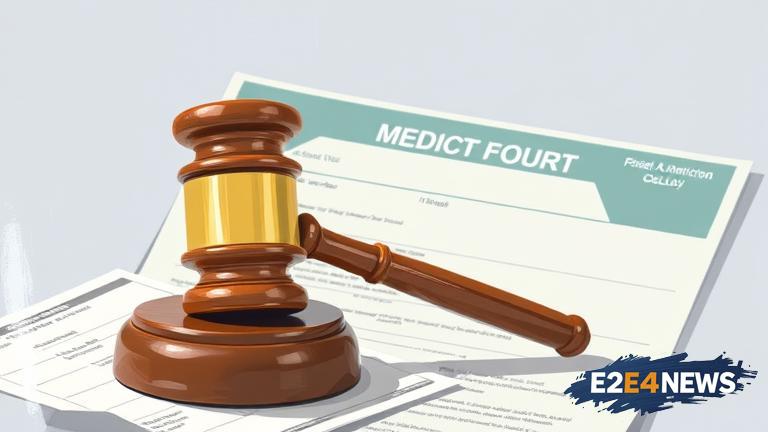A federal judge has made a significant ruling regarding medical debt in the United States. The decision states that medical debt can remain on credit reports, which may have severe consequences for individuals struggling to pay their medical bills. This ruling has sparked widespread concern among consumer advocates, who argue that it will exacerbate the existing financial burden on Americans. Medical debt is a leading cause of bankruptcy in the US, and this decision may further complicate the situation. The judge’s ruling comes after a lawsuit was filed against the three major credit reporting agencies, Equifax, Experian, and TransUnion. The plaintiffs argued that the credit reporting agencies were violating the Fair Credit Reporting Act by including medical debt in credit reports. However, the judge disagreed, stating that the law does not prohibit the inclusion of medical debt. The ruling may have far-reaching implications, as medical debt can significantly lower an individual’s credit score. A lower credit score can make it more difficult for people to obtain loans, credit cards, and even rent apartments. Furthermore, the decision may disproportionately affect low-income individuals and families, who are already struggling to make ends meet. The ruling has been met with criticism from consumer advocacy groups, who argue that it will perpetuate a cycle of debt and financial insecurity. In response to the ruling, some lawmakers have called for legislation to protect consumers from the negative effects of medical debt on their credit reports. The issue of medical debt is complex and multifaceted, involving not only credit reporting agencies but also healthcare providers, insurance companies, and government agencies. To address this issue, a comprehensive approach is needed, one that takes into account the various factors contributing to medical debt. This may involve reforms to the healthcare system, changes to credit reporting practices, and increased support for individuals struggling to pay their medical bills. Ultimately, the goal should be to ensure that individuals are not unfairly penalized for circumstances beyond their control, such as unexpected medical expenses. The ruling highlights the need for continued discussion and debate about the role of credit reporting agencies and the impact of medical debt on individuals and families. As the situation continues to evolve, it is essential to prioritize the needs and well-being of consumers, who are often the most vulnerable in these situations. The ruling serves as a reminder that the relationship between credit reporting agencies, healthcare providers, and government agencies is complex and requires careful consideration. By working together, it may be possible to find solutions that balance the needs of all parties involved and promote a more equitable and just system.
